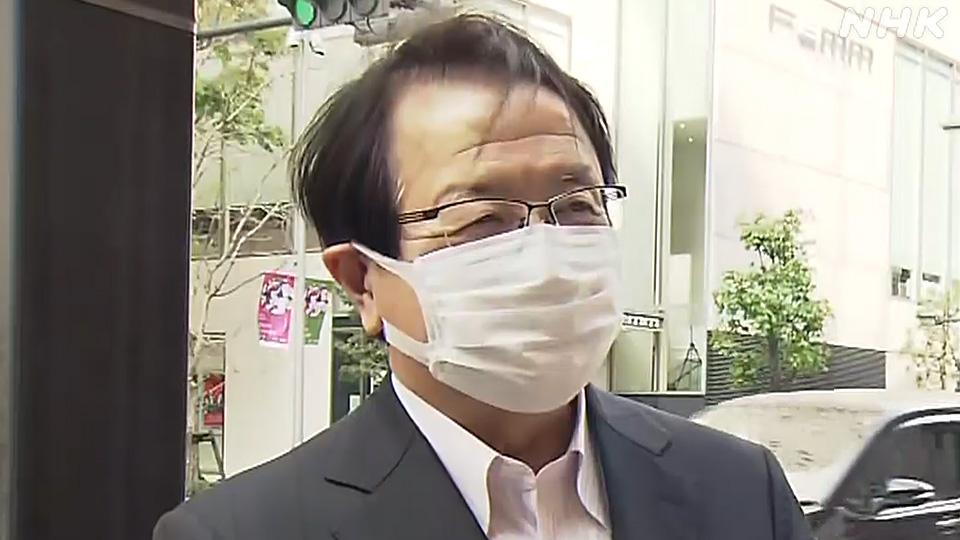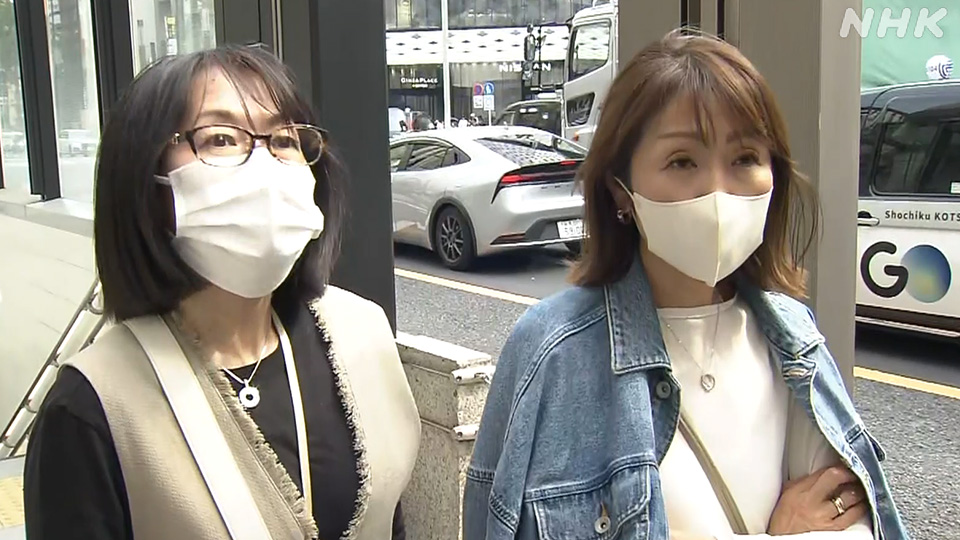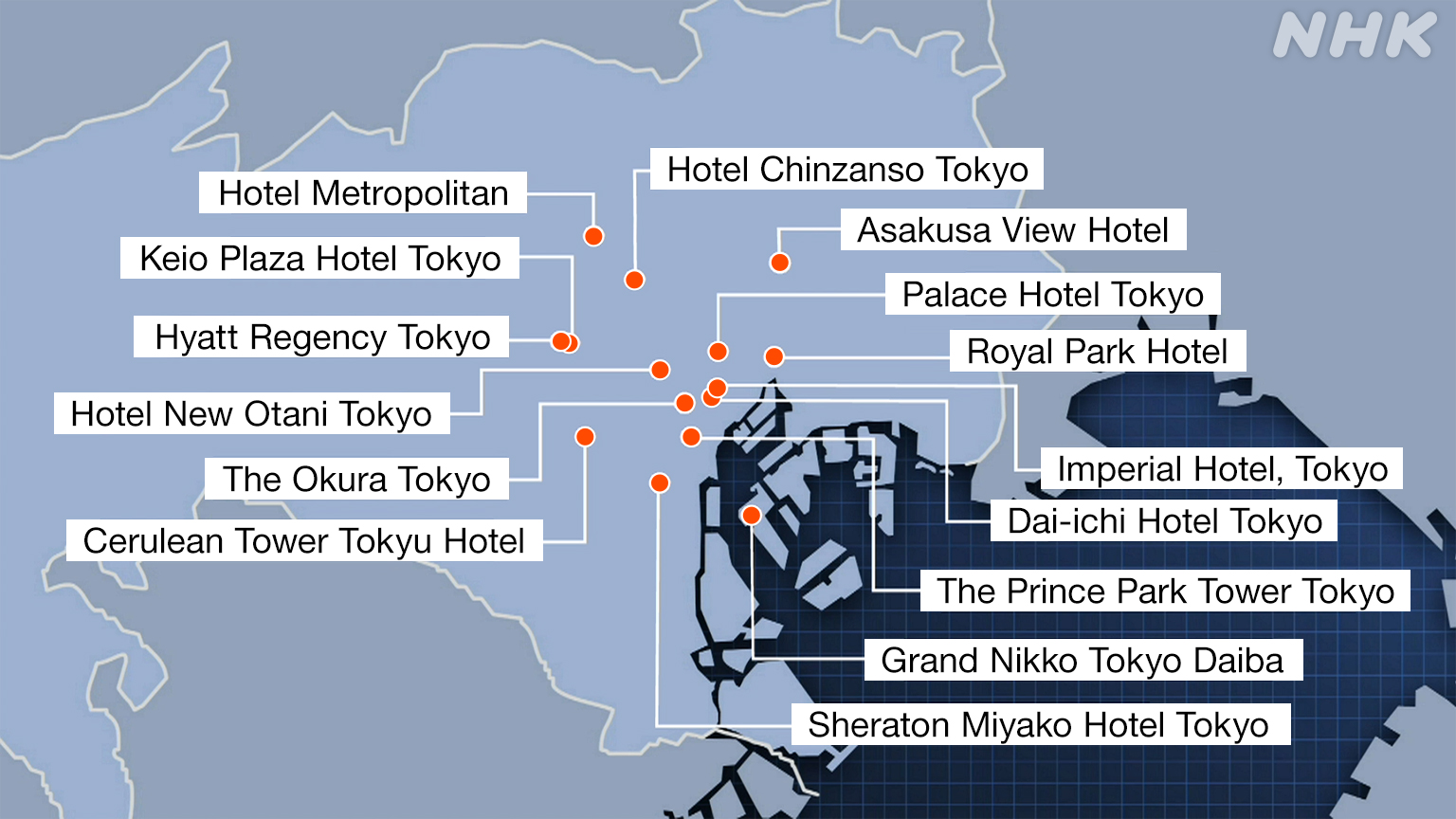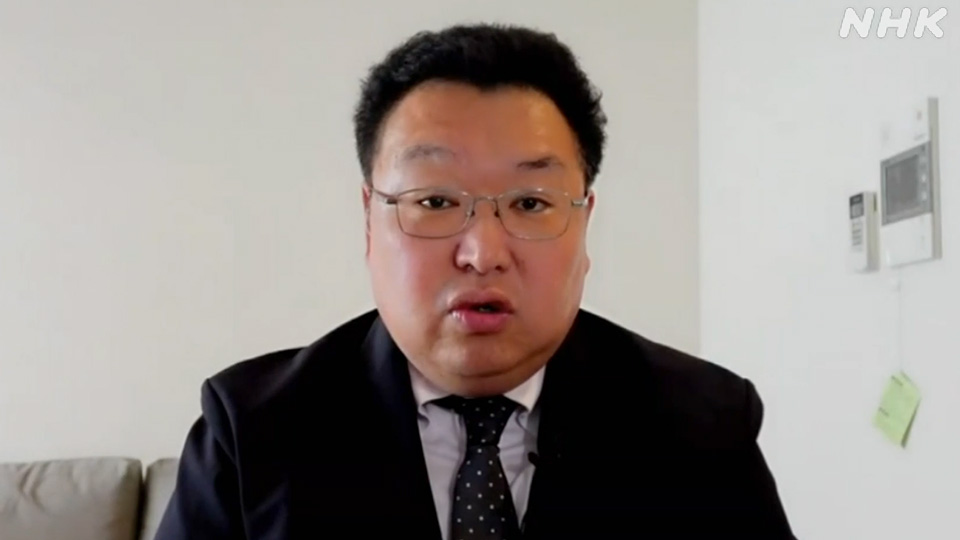Sources have told NHK that the Fair Trade Commission is expected to issue a warning to 15 leading Tokyo hotels over alleged actions to control prices.
The hotels are said to have engaged in cartel-like moves that the Commission says may violate the Anti-Monopoly Law.
Prices not normal
The daily rate for a room at hotels in Tokyo has kept rising since the end of the coronavirus pandemic. The average daily rate last year was more than 26,000 yen. That’s up almost 140 percent from what it was in 2019.
People on the streets of the Japanese capital told NHK that rates are abnormally high.
One man said he has stayed at most of the 15 main hotels in Tokyo. He said he hopes they will set proper rates so anyone can stay there.

Others said hotel accommodation fees are getting expensive, and they suspect that has been encouraged by the increasing number of inbound tourists visiting Tokyo.

Major hotels allegedly shared info
The New Otani, The Imperial, and The Okura Tokyo are among the hotels alleged to have exchanged internal information in a way that could violate Japan’s Anti-Monopoly Law.

Hotels expected to receive warning
Data on fees, occupancy
Sources say sales officials of the 15 hotels attended a monthly Front Reservation, or FR, meeting in Tokyo. Participants shared internal information such as room occupancy, average fees, and policies to set future daily rates. The members have taken turns hosting the meetings, which began several decades ago.
Sources say a Fair Trade Commission probe has not found any coordinated, simultaneous rate increases, but some hotels reportedly used the shared information as a yardstick to set their own rates.
However, the 15 hotels have reportedly already stopped sharing information.
The Imperial Hotel says the practice in question was not intended to unfairly restrict trade. It says it will continue to fully cooperate with the investigation.
The Hyatt Regency Tokyo apologized for causing concerns among its guests. It admitted sharing information with other hotels, but says it was intended to gather information on how other firms manage hotels. It attributed this to a lack of awareness about legal compliance. The hotel says it will work harder to educate its staff.
Expert: Impact on customers will be limited
NHK asked airline and travel analyst Toriumi Kotaro about the trends of hotel accommodation prices and their impact on customers.
Toriumi says the price for rooms remains high as demand has continued to exceed supply in Japan. He indicated that one factor behind that is Japan’s increasing number of inbound tourists, which recovered much faster than expected after the coronavirus pandemic.
He says the trend will likely continue, as Japan is expected to receive a large number of overseas tourists this year.

Airline and travel analyst Toriumi Kotaro
As for major hotels sharing room pricing information with each other, Toriumi says that those established hotels are closely linked, and affect one another in market price trends.
He says that as a whole, the high-ranked hotels might have sought to make the most of their opportunities, while avoiding to lower their prices too much. He added that the hotels may have feared their reputations could drop when others of the same rank lowered rates.
Toriumi says though a certain number of hotels shared information on their accommodation prices, the impact on customers will be limited. Generally, prices at hotels constantly fluctuate due to supply and demand, and hotels try to lower prices as much as possible when they have more vacancies.


AloJapan.com